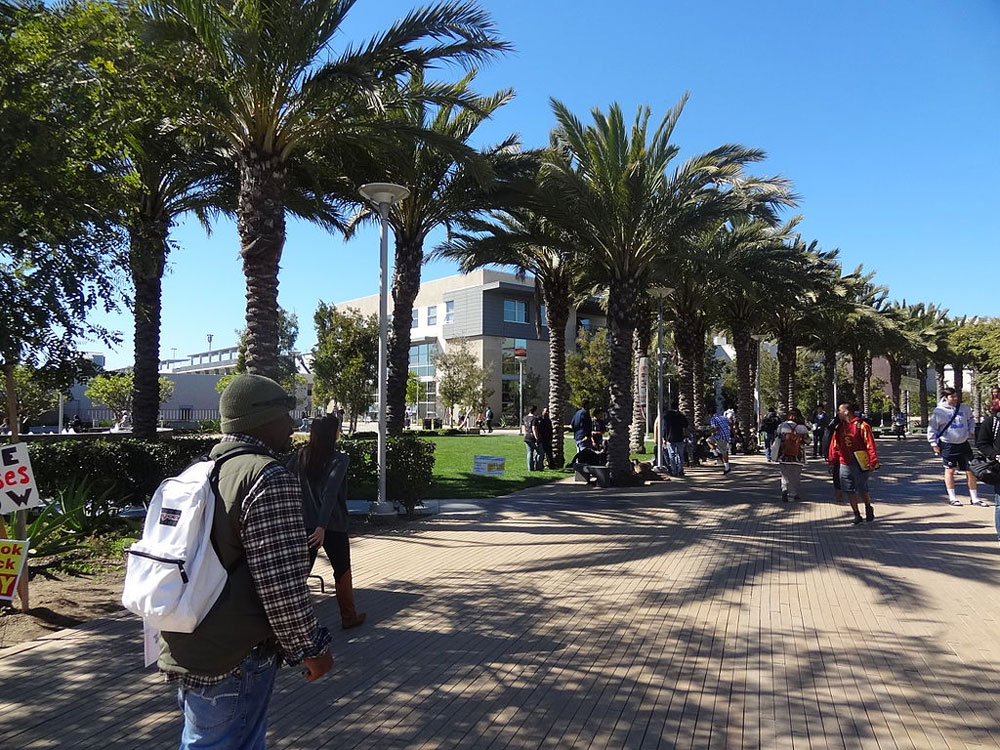
May 7, 2020, Cal Matters
Community college students are not all fresh from high school; they can be parents who want or need classes for their jobs or careers, adults looking for training to attain certification, or lifelong learners. However, those who aren’t full-time students are cut off from a variety of kinds of federal aid. Accordingly, community colleges and their foundations are stepping up to assist students who have been affected by the pandemic, particularly those who are undocumented or bring in low incomes.
In order to answer the need of students suddenly put out of their classrooms and who may be have lost jobs, the Cuesta College Foundation will be granting out $250,000— more than double its usual annual aid of $90,000-$100,000, according to executive director Shannon Hill. In April, $35,000 was approved to give $1,000 in emergency assistance to students, with a possibility of getting $500 more. Undocumented students are a priority, since they are not permitted to obtain any of the $14 billion in CARES Act stimulus funds that have been directed to higher education. It is estimated there are 454,000 undocumented college students in the US, with over 90,000 in California.
“We do anticipate that more of our emergency grants will likely go to students who are not getting the CARES money, because we’ll be helping to fill that gap for our students,” Hill said in an interview.
NPQ wrote of the $6.3 billion that was intended to aid students but excluded many, such as those who have defaulted on past loans, have prior drug convictions, or are undocumented. Plus, this federal aid will not fill the holes in college budgets left by pandemic-caused expenses and the threat of low enrollment for the fall. It is left to philanthropy to help.
An example of the target student for the foundation grants, an undocumented immigrant from Cameroon, who works part-time as a home-care aide, attends college full-time and has a school-aged child. While she does not qualify for federal student aid, California has waived her tuition and provides other grants, including $3,000 a semester because she is a student with a young child. She is now receiving the delivered meals and access to the food pantry, saving a couple of hundred dollars a month.
“I just have no words, to be honest,” she said. “I just feel like I’ve been surrounded with good people.”
The majority of community colleges in California have foundations linked to them, as do colleges and universities across the country; GuideStar lists 2,887 community college foundations. Foundations associated with public university systems often offer more flexibility in what they fund than the colleges, and foundation directors, primarily in California, are directing support to undocumented students to cover needs such as rent, food, and laptops.
“We have many, many students who would not receive any support from the CARES Act but will receive our scholarship funds,” said Lizzy Moore, president of the Santa Monica College Foundation. SMCF raised $780,000 in scholarships to mete out to students—a banner year, Moore says.
SMCF is also partnering with Everytable, a meal delivery company in Los Angeles, distributing seven meals a week to 1,000 students. Moore raised $1.25 million to feed 1,500 students to mid-September, after the foundation realized that the student’s food pantry, used by 100 to 200 students when the campus was open, would be closed with the campus. Students can choose where they want the free meals delivered. The foundation is running a weekly drive-thru food pantry where enrolled students can pick up fresh produce, eggs, milk, and shelf-stable items.
Sign up for our free newsletters
Subscribe to NPQ's newsletters to have our top stories delivered directly to your inbox.
By signing up, you agree to our privacy policy and terms of use, and to receive messages from NPQ and our partners.
Community colleges in other states are providing similar assistance. In Pennsylvania, the Community College of Allegheny County has used its Educational Foundation to provide funds, with students applying for up to $500. And Westmoreland County Community College asked students what they needed to remain in school.
“Do you need a computer? Do you need a hotspot? Do you need money for food? Do you need money for your rent?” said President Tuesday Stanley.
Just like any other nonprofit, college foundations must respect donor intent, which is where their flexibility ends. Foothill-De Anza Foundation, which supports two schools, Foothill College and De Anza College, has $40 million, but most of it is restricted. The executive director, Dennis Cima, said they managed to put together $350,000 to use for emergency aid to students now, with $1.25 million set aside to support students into the next school year.
The foundation will have to raise funds to replace the discretionary grant money. “I am comfortable allocating these discretionary funds knowing the immediate need that our colleges and students have,” Cima said.
Community colleges across the country received less of the stimulus money than other institutions of higher education, and California community colleges only received a third of the state’s education assistance money although they have 60 percent of the students. It is the result of the way CARES Act counts “full-time equivalent” students; if 12 credits is full-time, and a student is taking six credits while working, they are only getting half the help. This, says Debbie Cochrane, executive vice president at The Institute for College Access & Success, penalizes community colleges where significant shares of students are part-time and “really adds insult to injury.”
“Two part-time students can’t share one laptop. Two part-time students need two laptops,” Cochrane says.
California passed a law last year that permits community colleges to use an annual allotment of $500 million that was originally intended for various other academic support on emergency aid. This law has come into play now, especially for students who the federal government has decided are ineligible for aid.
Undocumented students will be offered emergency aid, the University of California and California State University have vowed, and they will use an assortment of internal resources as well as fundraising and other foundation grants. They are determined to take care of the students left out by the federal grants. A UC spokesperson pointed out that “the aid an undocumented student receives will be equivalent to the amount that an equally needy student who qualifies for CARES Act funding would receive.”
The foundations have stepped up, and it should be noted that donors need to understand that fewer restrictions on gifts would go a long way in a crisis.—Marian Conway
Correction: This article has been altered from its initial form to reflect that two of the colleges discussed are sited in Pennsylvania, not New Jersey. NPQ regrets the error.












